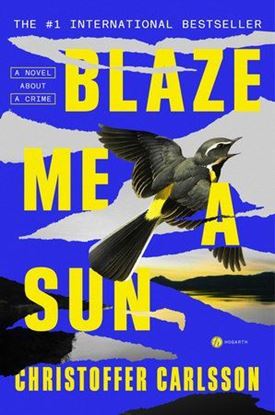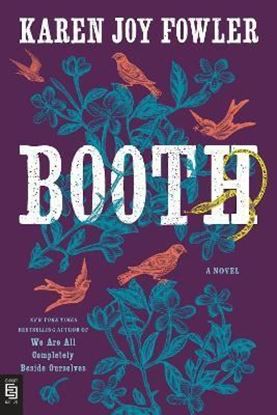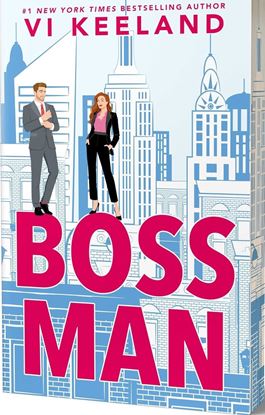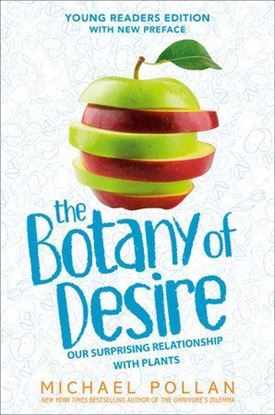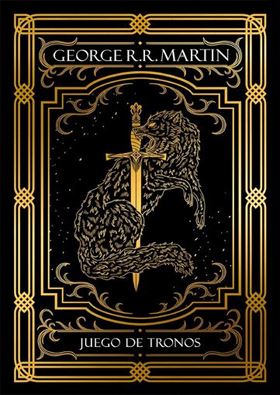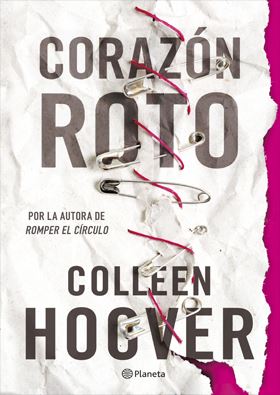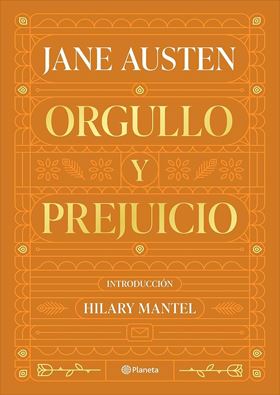

BLAZE ME A SUN (MR EXP)
In February 1986, the Halland police receive a call from a man who claims to have attacked his first victim. I’m going to do it again, he says before the line cuts off. By the time police officer Sven Jörgensson reaches the crime scene, the woman is taking her last breath. For Sven, this will prove a decisive moment. On the same night, Sweden plunges into a state of shock after the murder of the prime minister. Could there possibly be a connection?
As Sven becomes obsessed with the case, two more fall victim. For years, Sven remains haunted by the murders he cannot solve, fearing the killer will strike again. Having failed to catch him, Sven retires from the police, passing his obsession to his son, who has joined the force to be closer to his father.
Decades later, the case unexpectedly resurfaces when a novelist returns home to Halland amid a failed marriage and a sputtering career. The writer befriends the retired police officer, who helps the novelist—our narrator—unspool the many strands of this engrossing tale about a community confronting its shames and legacies.
995
BOOK BOYFRIEND
Jennifer Worth lives to escape into the world of her favorite romantasy series Elytheum Courts, where the romance is sweeping and the men are brave, chivalrous . . . and winged. Newly single and craving connection, she travels to an immersive fan experience celebrating all things Elytheum, only to see the last face she expected—Scott Daniels, her work nemesis, whose disinterest in Jennifer’s favorite series and standoffishness have made their publishing jobs feel like a feuding fae court.
Except the Scott she encounters at the Elytheum Experience, in his secondhand cosplay outfit, is . . . different. Swaggering, flirtatious, confident. Unlucky in romance himself and inspired by Jennifer’s love for the swoonworthy men of Elytheum, Scott is determined to remake himself into the perfect book boyfriend.
Jennifer has no interest in helping the man who vexes her every workday and dismisses her fictional fantasies, but as the immersive convention activities force them together, they’re surprised to discover magic like none Jennifer has ever read about. But is enemies-to-lovers romance only for books, or can Jennifer and Scott bring the trope to life?
900
BOOTH
In 1822, a secret family moves into a secret cabin some thirty miles northeast of Baltimore, to farm, to hide, and to bear ten children over the course of the next sixteen years. Junius Booth—breadwinner, celebrated Shakespearean actor, and master of the house in more ways than one—is at once a mesmerizing talent and a man of terrifying instability. One by one the children arrive, as year by year, the country draws frighteningly closer to the boiling point of secession and civil war.
As the tenor of the world shifts, the Booths emerge from their hidden lives to cement their place as one of the country’s leading theatrical families. But behind the curtains of the many stages they have graced, multiple scandals, family triumphs, and criminal disasters begin to take their toll, and the solemn siblings of John Wilkes Booth are left to reckon with the truth behind the destructively specious promise of an early prophecy.
850
BORROW MY HEART
Wren is used to being called a control freak. She doesn’t care; sticking to the list of rules she created for herself helps her navigate life. But when a cute guy named Asher walks through the door of her neighborhood coffee shop, the rulebook goes out the window.
Asher is cute, charming . . . and being catfished by his online crush. So Wren makes an uncharacteristically impulsive decision—she pretends to be the girl he’s waiting for to save him from embarrassment. Suddenly she’s fake-dating a boy she knows nothing about. And it’s . . . amazing.
It’s not long before Asher has her breaking even more of her own rules. But will he forgive her when he finds out she’s not who she says she is? Wren’s not so sure. . . . After all, rules exist for a reason.
900
BOSSMAN (DELUXE EDITION)
Reese Annesley was hiding in the bathroom hallway of a restaurant leaving a message for her best friend to save her from her awful date, when a gorgeous stranger overhears and offers her some dating advice. She proceeds to tell him to mind his own damn business his own tall, handsome, full-of-himself damn business and goes back to her miserable date, though she can't help but sneak hidden glances at the condescending jerk on the other side of the room. Of course, he catches her―and winks.
When Chase Parker and his equally hot date suddenly appear at Reese's table, she's sure he's going to rat her out. But instead, he pretends he and Reese are old friends and joins them, telling elaborate, embarrassing stories about their fake childhood. And her date suddenly goes from boring to bizarrely exciting.
1,150
BOTANY OF DESIRE YOUNG READERS
In this entertaining young readers edition of the environmental studies classic, Michael Pollan demonstrates how people and domesticated plants have formed a reciprocal relationship. He links four fundamental human desires—sweetness, beauty, energy, and control—with the plants that satisfy them: the apple, the tulip, coffee, and the potato. In telling the stories of four familiar species, Pollan illustrates how the plants have evolved to satisfy humankind’s most basic yearnings. And just as we’ve benefited from these plants, we have also helped them to thrive.
1,250

